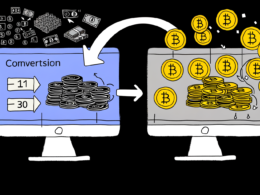Czech police detain key figure in a $45M Bitcoin scandal, seizing assets amid an escalating political probe. #Bitcoin #CzechRepublic #Scandal
- Introduction: Bitcoin’s Unforeseen Political Ripple: The Czech Scandal Unpacked
- The Context: Bitcoin’s Journey from Digital Novelty to Political Catalyst
- Main Insights on the Bitcoin Donation Scandal
- Challenges: Navigating the Complex Landscape of Cryptocurrency Regulation
- Future Outlook: Bitcoin and Beyond – Navigating the Path Forward
- Final Reflections on the Bitcoin Donation Scandal: Insights for the Future
Introduction: Bitcoin’s Unforeseen Political Ripple: The Czech Scandal Unpacked
In recent months, the Czech Republic has found itself at the heart of a political maelstrom, all triggered by an unexpected Bitcoin donation. This scandal not only threatened the stability of the Czech government but also highlighted the complex interplay between cryptocurrency and governance. With Bitcoin’s reputation as a revolutionary financial tool, its involvement in such a high-stakes political crisis underscores the need for a nuanced understanding of its potential impacts. This article delves into the details of the scandal, exploring how a single donation led to political upheaval, legal scrutiny, and a nationwide conversation about digital currencies.
The Context: Bitcoin’s Journey from Digital Novelty to Political Catalyst
Bitcoin’s inception in 2009 marked the beginning of a new era in digital finance. Initially perceived as a niche interest among tech enthusiasts, Bitcoin’s decentralized nature soon attracted the attention of broader financial markets and, inevitably, regulatory bodies. As its value soared, so did the interest of investors and institutions, prompting a global shift towards recognizing cryptocurrencies as legitimate financial instruments. However, this recognition came with challenges, particularly regarding regulation and security.
In the Czech Republic, these challenges reached a climax with the Bitcoin donation scandal. The donation, made by Tomas Jirikovsky, a convicted drug trafficker, was initially seen as a philanthropic gesture towards the Ministry of Justice. Yet, the lack of due diligence in verifying the donation’s origins quickly turned it into a political liability. This incident not only demonstrated the potential for cryptocurrencies to be used in money laundering and illicit activities but also highlighted the gaps in existing regulatory frameworks.
Main Insights on the Bitcoin Donation Scandal
- The Donation That Triggered a Crisis
In early 2023, the Czech Ministry of Justice received a donation of 468 Bitcoin, valued at approximately $45 million at the time. The donor, Tomas Jirikovsky, was a known figure in the criminal underworld, having been previously convicted for drug trafficking on the darknet. Despite these red flags, the then-Justice Minister Pavel Blazek accepted the donation without conducting a thorough background check, a decision that would later cost him his position.
- Political Fallout and Government Instability
The revelation of Jirikovsky’s involvement in the donation led to a political crisis, culminating in a no-confidence vote against Prime Minister Petr Fiala’s government. Although the government narrowly survived, the incident exposed deep-seated vulnerabilities in the administration’s oversight mechanisms. Opposition parties, particularly ANO, capitalized on the scandal, calling for further resignations and reforms.
- Legal and Regulatory Implications
The scandal prompted a series of legal investigations, spearheaded by the National Centre for Combating Organised Crime. These investigations focused on potential money laundering and the unlawful origins of the Bitcoin donation. The High Public Prosecutor’s Office in Olomouc played a pivotal role in separating this case from broader probes, emphasizing the need for a focused examination of cryptocurrency-related crime.
- The Role of Media and Public Perception
Media coverage played a crucial role in shaping public perception of the scandal. Outlets like Echo24 broke the story, sparking widespread debate about the ethical and legal responsibilities of government officials in handling cryptocurrency donations. This coverage also intensified scrutiny on the government’s actions, leading to increased demand for transparency and accountability.
- The Aftermath and Long-Term Consequences
In response to the scandal, Eva Decroix, the new Justice Minister, initiated an audit that revealed the donation should never have been accepted. This finding underscored the need for stricter regulatory measures concerning cryptocurrency transactions. As the government prepares for upcoming parliamentary elections, the scandal’s implications continue to resonate, influencing policy discussions and voter sentiment.
The Bitcoin donation scandal highlighted several key challenges in regulating cryptocurrencies. Firstly, the anonymity and decentralization that make Bitcoin appealing also complicate efforts to trace and verify transactions. This inherent complexity poses significant risks for governments and financial institutions, as evidenced by the Czech scandal.
Moreover, the lack of a unified global regulatory framework exacerbates these challenges. While some countries have implemented stringent measures to combat cryptocurrency-related crime, others lag behind, creating opportunities for exploitation. The Czech Republic’s experience underscores the urgent need for international cooperation and standardized regulations to address these vulnerabilities.
Looking ahead, the Czech Bitcoin scandal serves as a cautionary tale for governments worldwide. As cryptocurrencies continue to gain prominence, the need for robust regulatory frameworks becomes increasingly apparent. Future developments in blockchain technology may offer solutions to some of these challenges, such as enhanced transaction transparency and improved security protocols.
Furthermore, the scandal highlights the importance of education and awareness in mitigating cryptocurrency-related risks. Governments and institutions must prioritize efforts to inform stakeholders about the potential pitfalls and best practices for engaging with digital currencies.
Final Reflections on the Bitcoin Donation Scandal: Insights for the Future
In conclusion, the Bitcoin donation scandal in the Czech Republic offers valuable lessons for policymakers, regulators, and the public. It underscores the need for vigilance, transparency, and proactive regulation in the rapidly evolving world of cryptocurrencies. As we move forward, it is crucial to balance the innovative potential of digital currencies with the imperative of safeguarding against misuse and ensuring stability in the financial and political arenas. The Czech experience serves as a reminder that while cryptocurrencies offer exciting possibilities, they also demand careful stewardship to prevent crises and foster trust in the digital economy.











